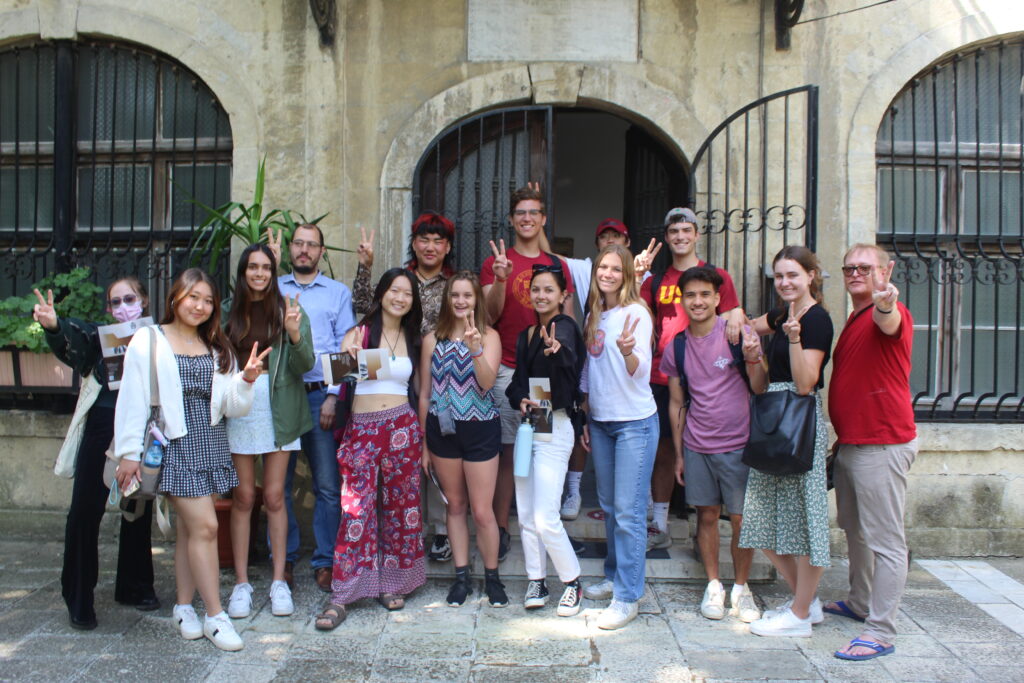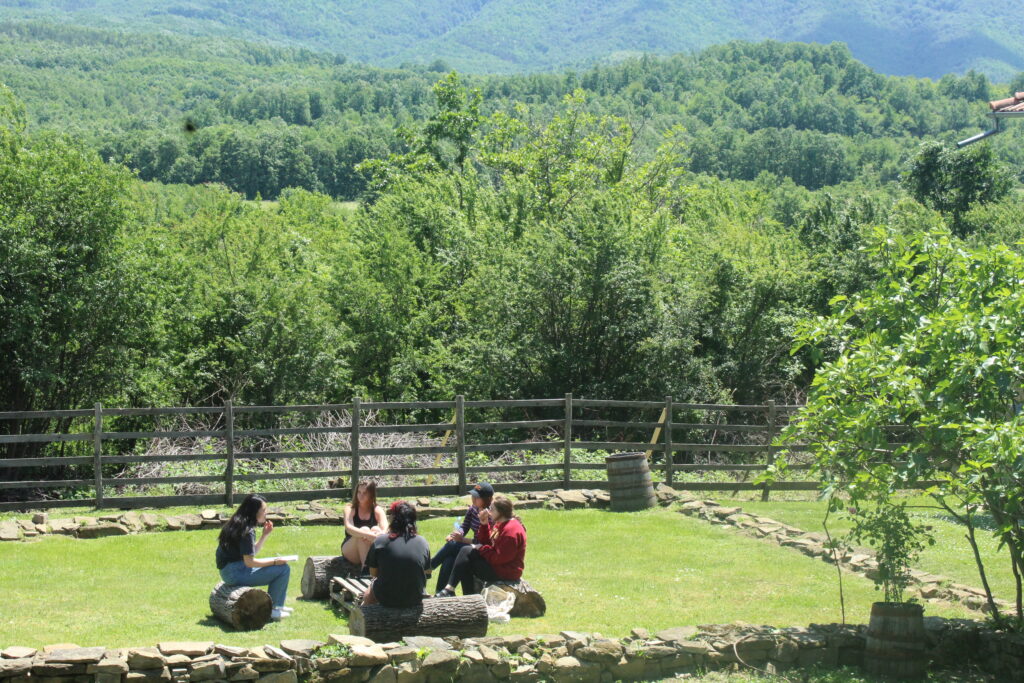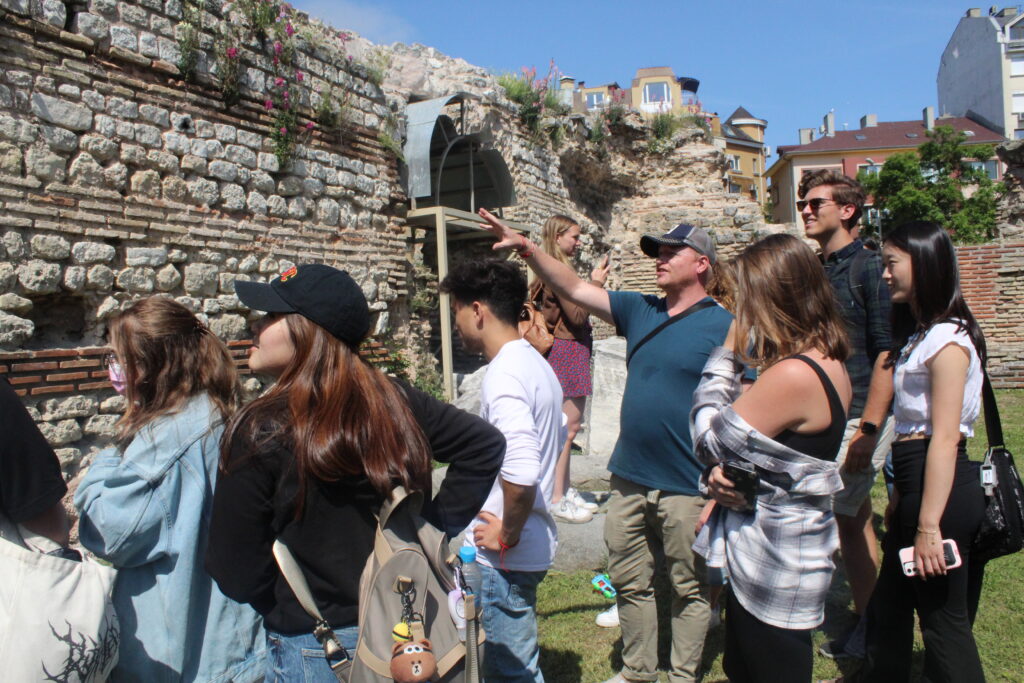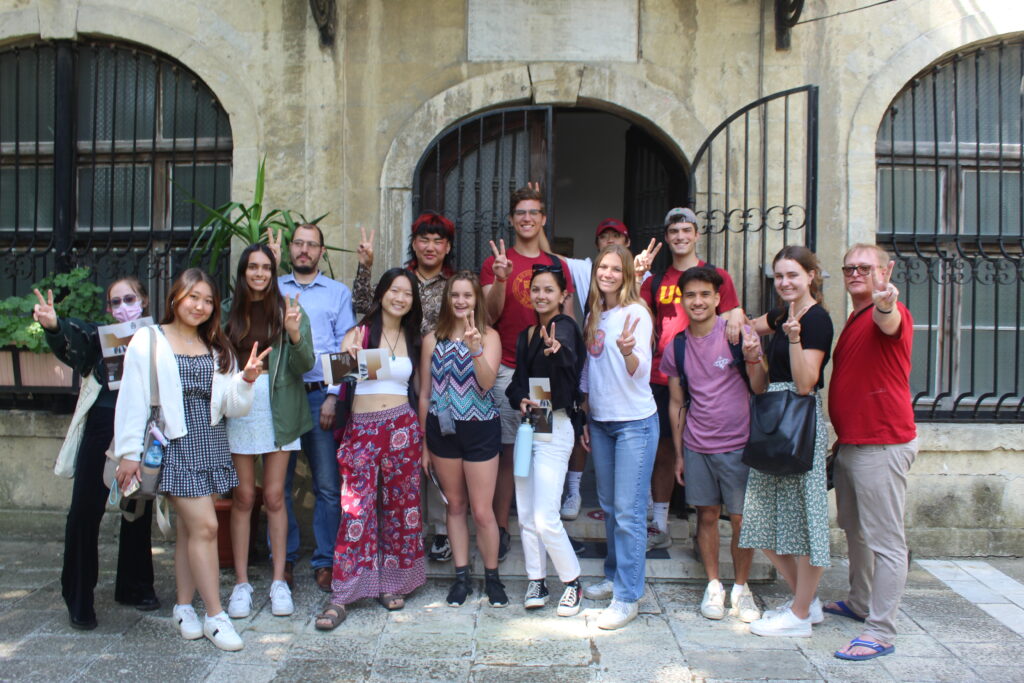
As many of their peers prepared for summer vacation, 13 USC School of Pharmacy undergraduates traveled throughout southeastern Europe for the Maymester class Balkan History, Geography and Folk Medicine. The 20-day trip was led by course instructor Terry David Church, assistant director of undergraduate education and a faculty member in the school’s Department of Regulatory and Quality Sciences.
The itinerary took students through parts of Bulgaria, Greece, Romania and Turkey to explore folk medicine’s evolutions, benefits and consequences as well as sustainability. “We also learn about the cultures, histories and experiences of the people in these countries,” Church says of the course.
Stone & Compass—a nonprofit educational and cultural organization that partnered with USC in offering the trip—hosted the students at its 2,000-acre property in the Balkan Mountains and helped coordinate excursions.
Among the trip’s highlights were a botanical and bee farm tour that detailed the healing properties of honey and local herbs, as well as a trip to a hot spring in Greece to learn about hydrothermal medicines. In addition, the students met with professors at the Istanbul University Faculty of Pharmacy in Turkey, Carol Davila University of Medicine and Pharmacy in Romania, and Medical University of Sofia Faculty of Pharmacy in Bulgaria. During these visits, the travelers learned about the medicinal properties of regional plants and toured medicinal gardens.

“This trip really opened my eyes to the endless possibilities and applications of plants in the world of medicine,” Pharmacology and Drug Development (PDD) student Jack Saville says. “Every professor at the universities we visited stressed how important it was for their pharmacy students to be able to identify plants that could be used to help treat patients.”
Recent PDD graduate Samantha Skinner adds that she was fascinated to learn about the terms “pharmacognosy” and “phytopharmacology,” both of which relate to the study of medicine from plant sources. “Pharmacists in other parts of the world take botany classes and familiarize themselves with the therapeutic properties of plants—something pharmacists in the U.S. don’t have much knowledge about,” she notes.
Students also attended planning meetings for a new clinic being built in the Bulgarian village of Stolat by Stone & Compass, which is committed to building global partnerships and projects that help those in need. Second-year PDD student Mikey Null called the meetings his favorite part of the Maymester class. He appreciated the perspectives he gained into the challenges arising from how the region’s natives view traditional western medicine.
“Running a small healthcare clinic is much more complex than I had initially thought,” Null says. “With roughly an even split of native Bulgarians and Roma who are reluctant to accept westernized medicine, we had to learn how to cater to both western and folk medicine, without excluding one or the other in meeting health needs.”

While the trip compressed a great deal of education and action into 20 days, Church still found time to help his students enjoy such activities as learning Bulgarian folk dancing, stargazing at night and touring landmarks.
“I was hoping that the Maymester trip would push my students to experience new things and spark new ideas,” Church says. “Travel is a phenomenal way of learning new things. It builds creativity and makes for a more dynamic thinker.”


